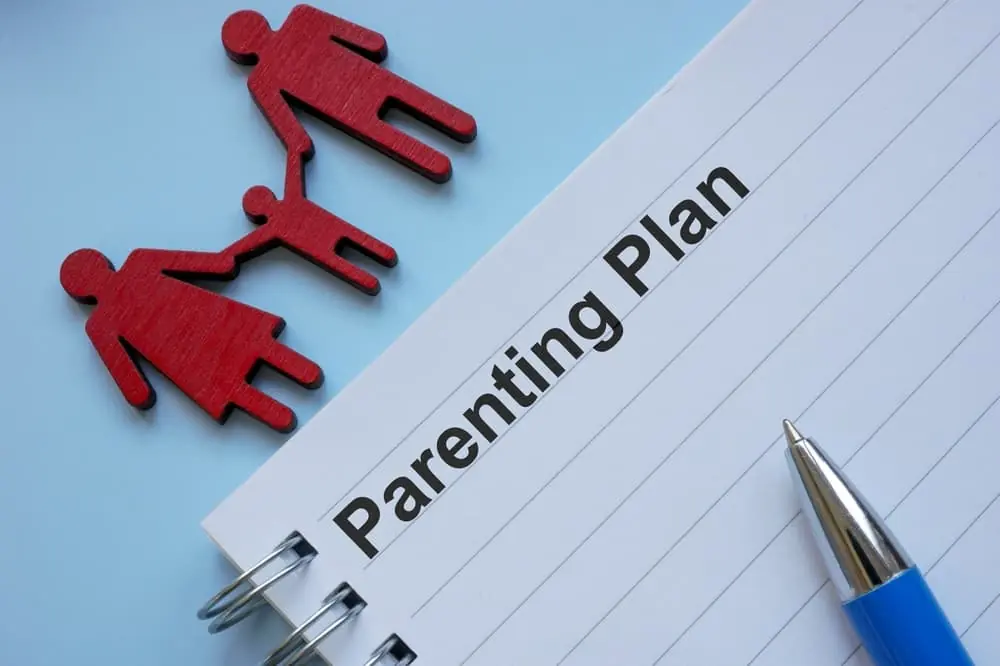A parenting plan isn’t just another court document. It’s a roadmap for how you and your child move forward after separation or divorce. It decides who sees the child when, who makes major decisions, and how parenting time is shared. And when emotions run high, and communication breaks down — which happens more than you’d think — that plan becomes the lifeline that keeps things from falling apart.
If you’re already frustrated with how things are going, or you’re worried about keeping your relationship with your child intact, calling a child custody attorney in Spokane, WA is the best step you can take.
Contact Us Today For A Consultation
What Exactly Is a Parenting Plan?
A parenting plan is a written agreement between parents that lays out exactly how they’ll raise their child post-separation. It’s legally required in many custody cases and often includes:
- Where the child will live and go to school
- A detailed schedule for time with each parent
- How holidays, vacations, and birthdays will be shared
- Who gets to make decisions about things like healthcare, education, and religion
The goal isn’t for one parent to “win.” It’s to give the child structure and stability during a tough time. Kids need to know what to expect. Who’s picking them up; where they’ll sleep? A solid plan gives them that comfort.
Courts take these plans seriously—and so should you. A family law lawyer can help ensure everything is clear, fair, and legally sound.
Is a Parenting Plan Legally Binding?
Yes. A parenting plan becomes legally binding only when it is incorporated into a court order. Once a judge approves and signs the plan, both parents are legally required to follow it. If one parent does not comply, the other can ask the court to enforce the order, which may include remedies like make-up parenting time or, in serious cases, sanctions. The Uniform Child Custody Jurisdiction and Enforcement Act (UCCJEA), adopted by most states, helps ensure that custody orders—including parenting plans—are enforceable across state lines.
And if someone’s violating the order, it’s absolutely worth talking to a custody attorney to enforce it.
What Happens When One Parent Doesn’t Follow the Plan?
This is where things get real. Maybe the other parent is showing up late for exchanges. Or not showing up at all. Maybe they’re making big decisions alone or refusing to return the child after a visit. That’s not just frustrating. It’s a violation of your legal rights.
If you’ve got proof—texts, missed exchange times, maybe even your child saying something—then you’ve got a case. Write it down. Save the messages. That kind of detail matters.
Courts can issue sanctions, adjust custody, or order make-up time. But they won’t do it unless someone steps forward and asks. And that’s where a family law attorney helps. They know how to bring this stuff to court without turning it into an all-out war. You just want things fair. You want what’s right for your kid. That’s what the law is there for.
Can a Parenting Plan Be Changed Later On?
Definitely — but not just because one parent feels like it. You’ll need to show a “material change in circumstances,” which can mean:
- A parent is moving far away
- The child’s health or schooling needs have changed
- One parent isn’t following the plan
Even then, the court will only approve changes if they’re in the child’s best interest. That’s the standard in every state. Don’t try to make informal changes, and hope for the best. That can cause even bigger problems down the line.
If your plan doesn’t fit anymore, a family law attorney can help you request the right updates, the right way.
How Do Courts Enforce Parenting Plans?
If a parent is not following the parenting plan, the other parent can document violations and file a motion with the court to enforce the order.
Courts may respond by:
- Ordering compliance
- Adjusting the plan,
- Imposing penalties.
The specific process and remedies vary by state.
Courts take enforcement seriously because this is about a child’s well-being, not just parent-to-parent drama.
Many courts prioritize frequent and continuing contact with both parents. If one parent blocks that time without a valid reason, it can backfire quickly.
And if things get out of control, courts may bring in tools like parenting coordinators or mediation. But again, that usually only happens after someone files a motion. You won’t get help if you don’t ask for it.
Why Following a Parenting Plan Matters for Your Custody Case
Not following a parenting plan can damage more than just your court case. It can damage your child.
These plans give kids a sense of safety. Knowing when they’ll see each parent helps them settle into a routine. When parents don’t stick to the plan, it throws everything into chaos. Kids feel that more deeply than adults sometimes realize.
Plus, courts notice. If you go back to modify the plan later, a judge will look at your past behavior. Have you been reliable? Respectful of the schedule? Putting your child first?
Stick to the plan. If you can’t, talk to a custody lawyer before taking matters into your own hands.
What If There’s No Parenting Plan in Place Yet?
Sometimes, parents separate and try to work things out on their own. Until it doesn’t work anymore. Maybe one parent keeps changing the schedule. Or they start making major decisions without discussing them. Suddenly, everything feels unbalanced.
If there’s no court-approved parenting plan, it’s harder to enforce anything. That’s why getting a formal plan in place is so important. It protects your time with your child and gives both sides clear expectations.
Don’t wait until things fall apart. A custody attorney can help you create a solid, detailed plan before conflict begins.
What Should Be Included in a Parenting Plan?
There’s no one-size-fits-all answer. But the best parenting plans are the ones that leave little room for confusion. Think of it as a playbook for co-parenting—clear, thorough, and easy to follow.
Most plans include:
- Week-to-week schedules
- Pick-up and drop-off logistics
- Rules for travel and vacations
- Decision-making responsibilities (like school, health care, and religion)
- Communication rules between parents
Want to avoid misunderstandings and arguments later? Cover all the details now. A family law lawyer can make sure nothing gets left out.
You Deserve a Plan That Works
A parenting plan isn’t just paperwork. It’s what keeps your child’s world stable when everything else feels uncertain. And if your plan isn’t working, or if you don’t have one at all, that can take a real toll.
You shouldn’t have to fight for time with your child. You shouldn’t be left guessing about what’s fair or allowed. A family law lawyer can help you develop a plan that protects what matters most: your bond with your child.
Don’t wait for things to get worse. Reach out for help now because your child deserves that stability. And you deserve to be there — fully, consistently, and without fear of it being taken away.







